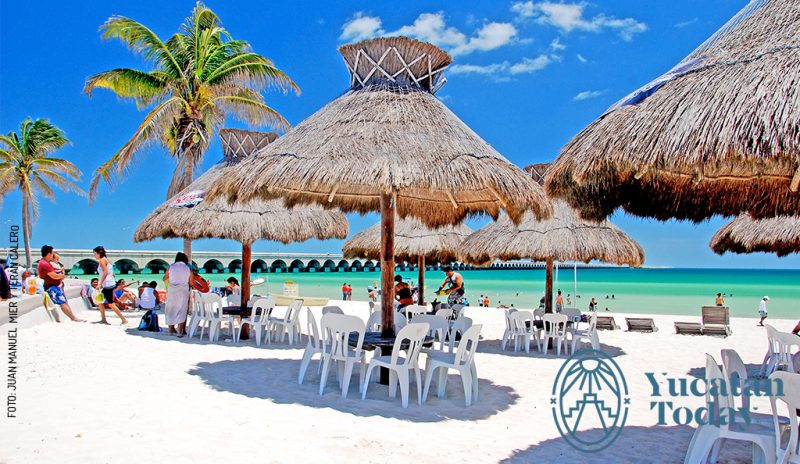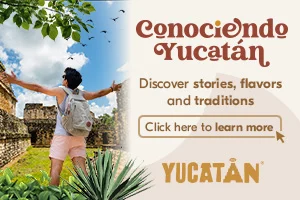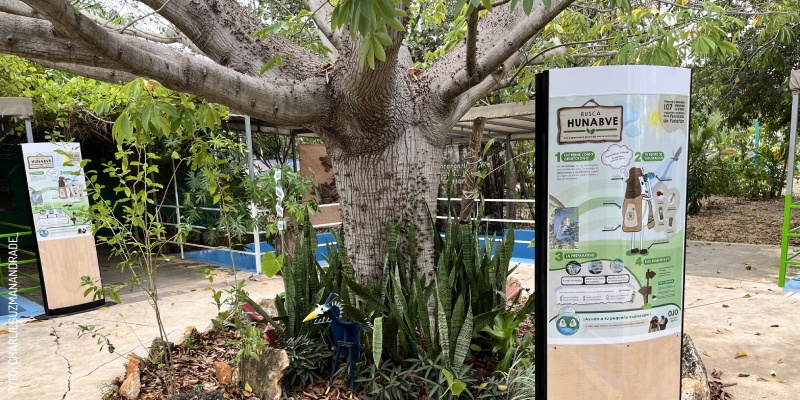
Growing Minds: HUNAB and Children's Environmental Education
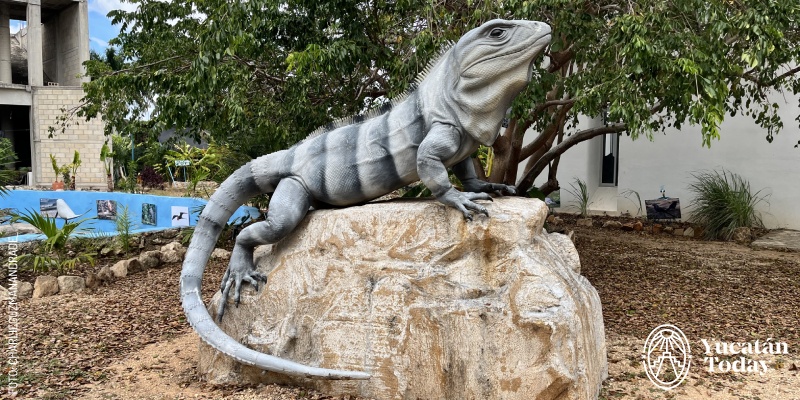 Sometimes we wonder if our actions truly make a difference in the world around us. The story of the non-profit organization HUNAB Proyecto de Vida demonstrates that anyone, whether adult or child, has the power to make a positive impact on society and inspire current generations.
Sometimes we wonder if our actions truly make a difference in the world around us. The story of the non-profit organization HUNAB Proyecto de Vida demonstrates that anyone, whether adult or child, has the power to make a positive impact on society and inspire current generations.
In 1995, Maritza Morales Casanova, who was just 10 years old, felt concerned about her school classmates' lack of care and interest towards other living beings and the environment in general. Motivated by the desire to defend all forms of life, she decided to start a children's movement in the San José Vergel neighborhood.
The initial momentum of the movement was based on various activities, largely inspired by the pages of National Geographic magazine. As a group of volunteer children formed, the movement gained strength. It was then that Maritza decided to give her initiative a meaningful name: HUNAB Proyecto de Vida, representing the fundamental values of Humanity, Unity, Nature, Harmony, Well-being, Kindness, and Beauty.
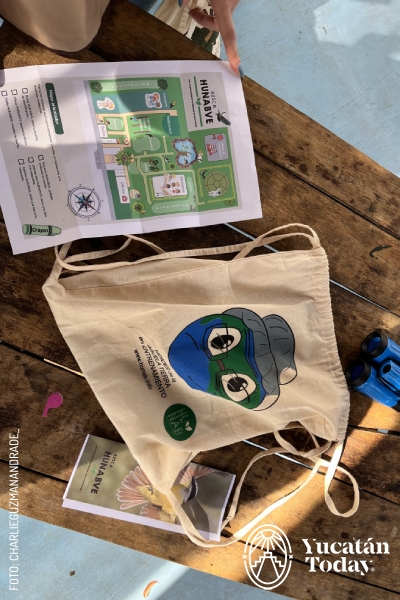 HUNAB started with various educational workshops and initiatives to raise awareness about the importance of the environment. Nature marches at Plaza Grande and funeral marches commemorating extinct species marked the early steps of this project.
HUNAB started with various educational workshops and initiatives to raise awareness about the importance of the environment. Nature marches at Plaza Grande and funeral marches commemorating extinct species marked the early steps of this project.
Between 2004 and 2007, HUNAB gained visibility by securing a space at the Xmaktuil Fair, where over 10 thousand visitors could learn from the teachings, mostly delivered by children.
The year 2007 marked a significant milestone in the association's journey when the council donated land to create HUNAB Ceiba Pentandra Park. After years of effort, dedication, and numerous national and international awards (such as the Rolex Awards for Enterprise Young Laureates and the National Geographic Emerging Explorer), on July 24, 2013, the park opened its doors to the public to revolutionize environmental education in México.
HUNAB adopted a unique pedagogy called Mondambientes, which is taught to children through a two-year diploma program that turns them into environmentalists from a young age. This innovative educational approach is based on 18 fundamental principles and takes place every Saturday from 8 am to 12 pm. During this rigorous yet enjoyable program, children have the opportunity to participate in a variety of enriching workshops, such as the Hablatabla, and learn more about medicinal plants in the botanical garden, enhancing their understanding and appreciation of Grandma Earth, as they like to call her at HUNAB.
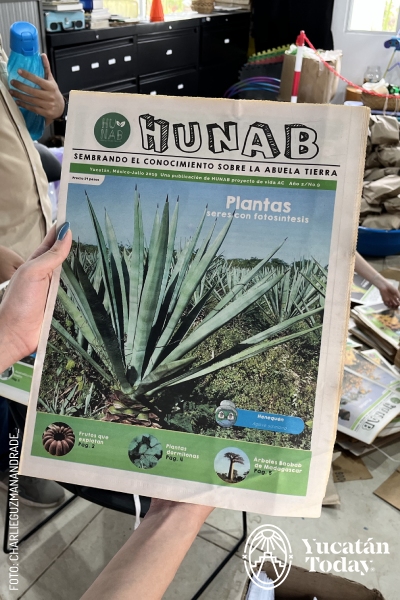 But that's not all. Participants can also choose from three specialized clubs per semester: Science, Animals, and Tales. Additionally, HUNAB organizes six-month summer clubs, fostering children's curiosity through fun activities.
But that's not all. Participants can also choose from three specialized clubs per semester: Science, Animals, and Tales. Additionally, HUNAB organizes six-month summer clubs, fostering children's curiosity through fun activities.
HUNAB's influence extends beyond the park, reaching schools, especially in communities inland. They conduct school visits and offer school support, training approximately 125 teachers to replicate the Mondambientes pedagogy in their institutions. This initiative has positively impacted around 8 thousand students, promoting continuous environmental education.
With a monthly recovery fee of $450 pesos, the diploma is aimed at children aged 6 to 13 and follows the SEP school calendar. However, HUNAB welcomes children without school affiliation upon reservation. Currently, they have four instructors committed to HUNAB's mission.
The park not only focuses on academic training but also offers special activities to connect children directly with nature. One of these activities is "Buscar HUNABVE," where children explore the park in search of 9 birds among 107 hidden photos. This exciting experience includes a jacket, a backpack, binoculars, a park map, and a detailed list of birds, including interesting facts about each one. This allows children to be in direct contact with the biodiversity of the environment.
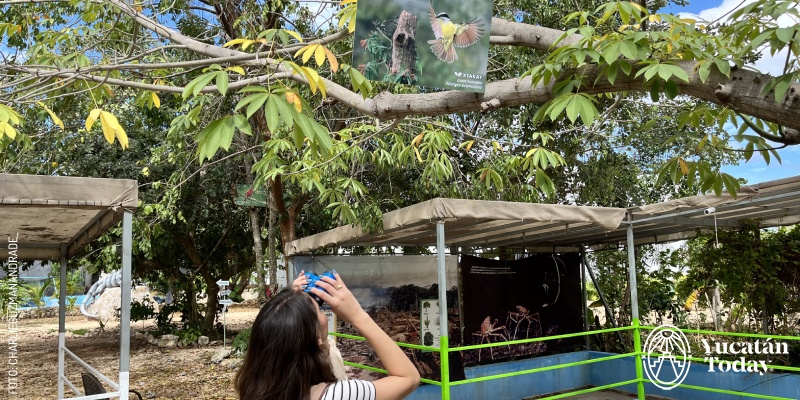 Additionally, there are special sound buttons strategically placed around the park that fill the air with the songs of specific birds. After finishing the activity, you'll learn all about bird habitats, diets, where they live, and protection categories, making it a great experience for everyone. And the best part? If you manage to complete the Busca HUNABVE challenge, you will receive a passport to environmental diversity as a reward, which you can fill in on your next visits with stamps from the environmental fun pavilions.
Additionally, there are special sound buttons strategically placed around the park that fill the air with the songs of specific birds. After finishing the activity, you'll learn all about bird habitats, diets, where they live, and protection categories, making it a great experience for everyone. And the best part? If you manage to complete the Busca HUNABVE challenge, you will receive a passport to environmental diversity as a reward, which you can fill in on your next visits with stamps from the environmental fun pavilions.
This activity is available from Monday to Friday, from 8:30 am to 3:30 pm. The recovery fee is $70 pesos for students and $100 pesos for adults. Children under 5 years old and INAPAM members receive a 50% discount. Guided school visits are only available by prior reservation, with a minimum of 12 people.
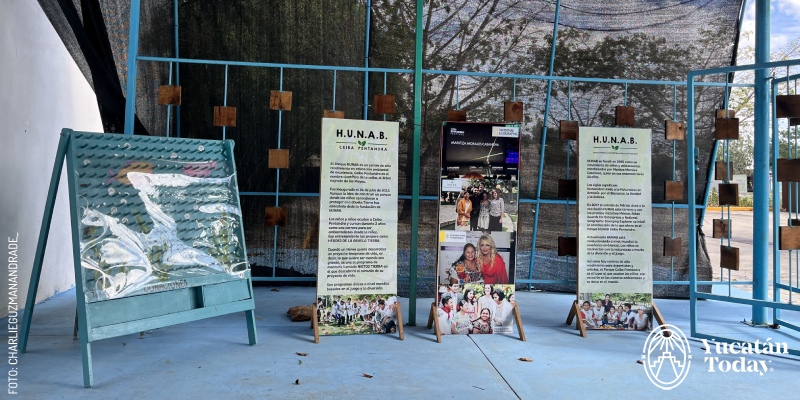
HUNAB also hosts workshops on ecosystems. Plus, they're gearing up to unveil the Water Culture Maze this year. This exciting new project is all about giving visitors an interactive education on the importance of water in our everyday lives.
So there you have it. What started as a small local initiative has grown into an educational park and environmental education center recognized nationally and internationally. With a clear vision and a steadfast commitment to environmental education, HUNAB has not only made an impact on the lives of thousands of children and young people but has also created a unique place where connecting with nature becomes a transformative experience.
HUNAB Proyecto de Vida A.C.
Calle 48 #420 x 27 y 29, Col.Nuevo Yucatán
Tel. 999 101 5492
Coordinator: Maritza Morales Casanova
servicioseducativos@hunab.info
maritza@hunab.info
www.hunab.info
IG: hunab_ac
FB: HUNAB proyecto de vida AC
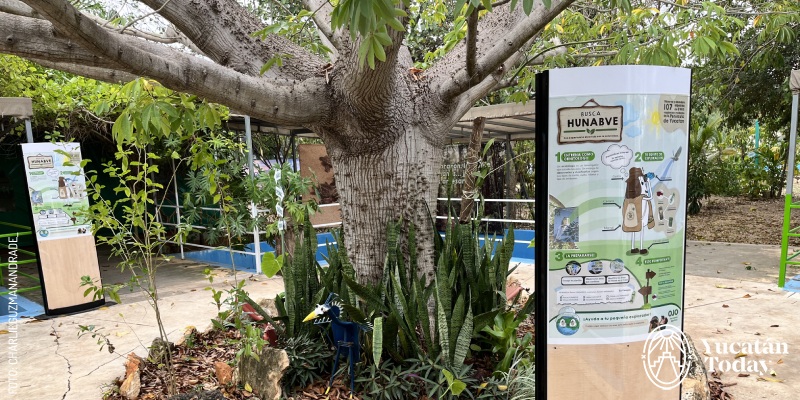
HUNAB Proyecto de Vida A.C. is part of the mutual aid network Mérida Nos Une. This network provides a space for citizens to connect, share resources, ideas, and experiences, and work together on projects and activities that benefit the community at large.
If you're unsure where to help, you can contact the network to explore various ways to get involved, support, and make a difference together. Reach out via cell phone at 999 338 8592, send an email to meridanosune1@gmail.com or meridanosune@merida.gob.mx, or fill out the "Quiero Ayudar (I Want to Help)" form on the Mérida Nos Une Platform.
Get to know this and at least 10 more associations that may need your help in Volunteering in Yucatán: Give Your Best this 2024.
Photography by Carlos Guzmán for its use in Yucatán Today.

Author: Sara Alba
Panamanian with a Mexican accent since 2005. Editorial Assistant, a walking jukebox, and always lurking on social media, in the constant search of hidden gems to visit and share.
Receive the latest articles and much more from the best of Yucatán in your email!
Related articles
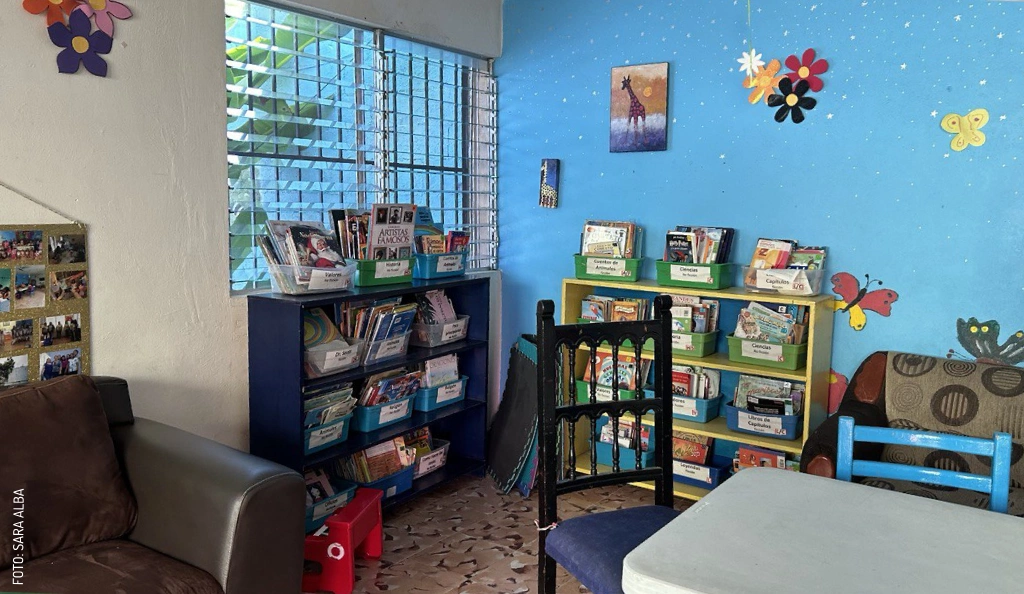
Amistad Erie Yucatán: With Over 50 Years of Solidarity
Discover the impactful work of Amistad Erie - Yucatán, a solidarity organization in Mérida. Learn about their programs and make a difference.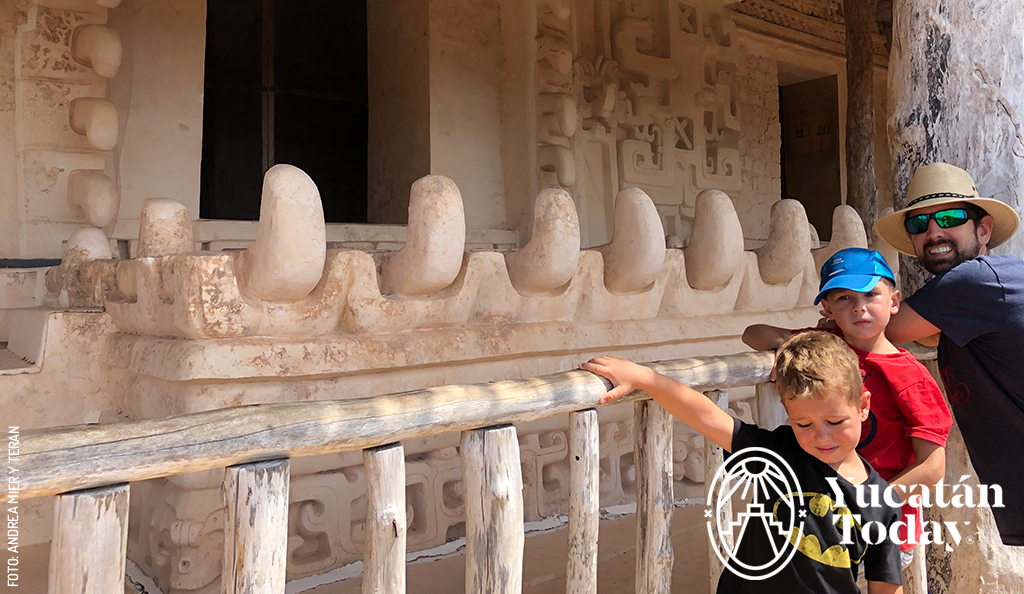
Traveling through Yucatan with children
Discover the best family-friendly activities in Yucatán, Mexico, from ice skating to exploring cenotes and historical sites.